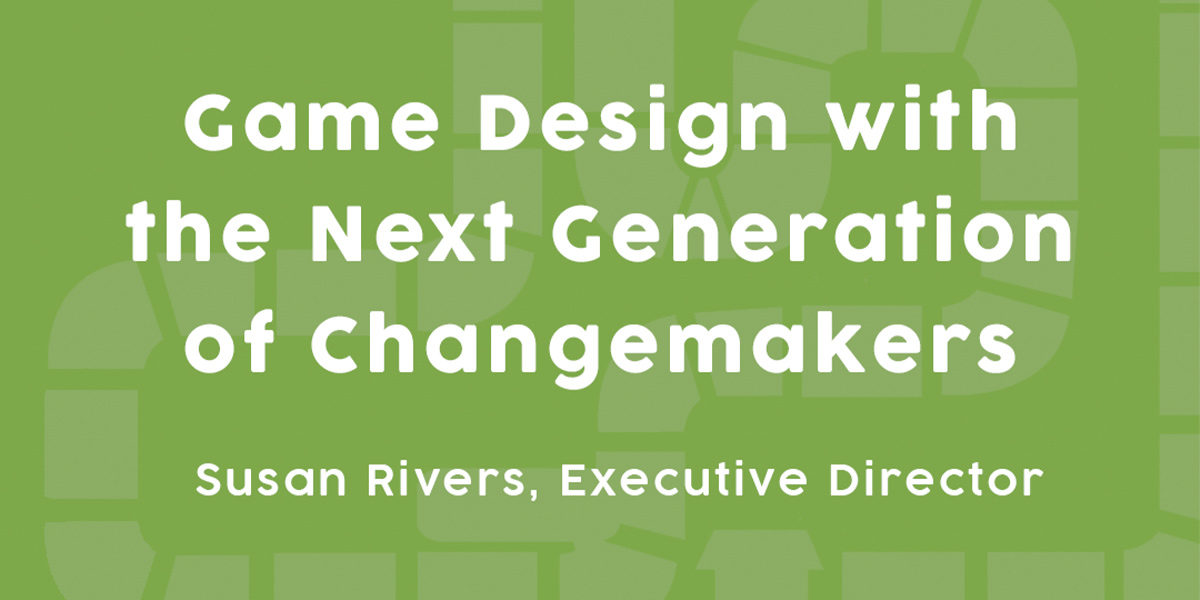
Game Design with the Next Generation of Changemakers
Empowering teens as changemakers means engaging youth and communities in drawing on the past and present to create new knowledge.
This article is the second in a series of posts that explore iThrive's Game Design Studio and our youth positive development approach, which staff will be sharing more about in a presentation called Teens as Changemakers at SXSW EDU on March 9th. You can read the first article here.
Teens' brains are undergoing the last major restructuring of development, one nearly on par with the brain growth of early childhood. That means the environments and interactions teens experience—good and bad alike—leave a deeper mark on the brain than they will in later years. At SXSW Edu next month, we'll be sharing our method of creating transformative environments.
Empowering teens as changemakers means engaging youth and communities in drawing on the past and present to create new knowledge. This positions teens not merely as end-users or consumers of programs, but as creators both of knowledge and action steps to begin the work of building healthy, equitable, and sustainable communities.
Game Design Studio is a co-design experience that furthers youth as creators of knowledge, individuals who have a real ability to contribute to meaning-making and surfacing of solutions. Teens who work in codesign on curricula, projects, games, and other products will help to shape the understanding of teens for their peers, teachers, educators, parents, and policymakers.
Positive Youth Development Approach
Game Design Studio is a positive youth development approach. Rather than focusing on what teens lack in their lives or community, positive youth development sees all teens as having the potential to make a meaningful contribution to society. In Game Design Studios, we create experiences and environments where:
- Youth contribute to knowledge creation and practice skills in substantive activities.
- Youth voice and youth agency are respected and encouraged, and
- Youth are authentically valued as creators and end-users, their contributions are critical in program development and execution.
Game Design Studio is one way that we integrate youth voice in our organization and beyond. Across activities, gameplay, and being present and in relationship with young people, we develop knowledge in partnership with them.
Structure and Experience
Designing games—like making a painting, composing a song, or writing a poem—is an act of self-expression. Unique to game design is designing a system with rules, roles, ways of progressing, and win and loss states. We use game design as a way to engage youth in thinking about their lived experience, how they think about and understand the world, and what they might like to be different in their world and how they would go about making that change. Synthesizing their imagined change into a structured game that others can experience supports youth designers in thinking concretely about the specifics of the change.
Through various structured and open-ended activities, we explore questions such as: How do you feel in the current state (your lived experience) and how would you like to feel instead? What would need to change about the rules, roles, ways of progressing, and win and loss states in your own life to feel that way you want to feel, as opposed to the way you do feel?
Changes that youth designers have imagined and designed games around have included:
- Being in a mutually respectful relationship with another adult (instead of one where they are expected to respect adults but adults are not respectful in return),
- Getting more sleep at night by having a room that is quiet and a mind that is not racing with the worries of the day (instead of suffering intrusions of sound and thoughts throughout the night), and
- Having conversations about someone dying and what grief feels like (instead of adults ignoring or being largely silent when someone close dies).
We believe this process lays a foundation to support social change, and it includes guiding teens in critical reflection to build hope and self-efficacy related to the possibility of system change. Teens think about and explore through gameplay and game design techniques the design of systems that impact their lives, the interpersonal and sociopolitical processes that perpetuate those systems, and the leverage points that have the potential to change interactions and processes for the better. This serves to prime youth to see their potential as change agents in the communities to which they belong. It can also support their integration of individual-level and community-level empowerment by informing those in power about helpful actions they could take to improve interactions with and experiences for disenfranchised teens.
At SXSW Edu 2020, we can't wait to highlight how making and sharing self-expressive creations can lead to positive change, first internally (within the teens' own minds by supporting identity formation, positive self-regard, and advocacy skills) and, ultimately and ideally, externally (longer-term, by informing those already in power in the systems that affect teens about how teens are experiencing those systems). We hope to see you there!


